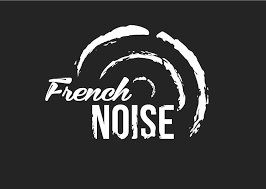Is letʰlá ‘noise’ an Americanism?
Is Chinook Jargon’s letʰlá ‘noise’ an Americanism?
Wiktionary suggests that the etymological source word in French, le train, means primarily ‘train’ or ‘pace’, except in Louisiana where it means ‘noise’.

Image credit: Bandcamp
So I wanted to check whether the use of le train for ‘noise’ is a New World innovation. I looked at a number of French varieties around the world.
‘Noise’ ≠ le train outside of North America
The TLFI, a massive historically-informed online dictionary based in France, seems to confirm this; I don’t see it registering a sense of le train as ‘noise’.
A dictionary of St Lucian French Creole, from the Caribbean, shows these words for ‘noise’ — dézòd, dibwi, son. Nothing tracing back to le train.
A dictionary of Mauritian French Creole, from the Indian Ocean, likewise has a number of words for ‘noise’, but none I found can be connected with le train.
‘Noise’ = le train in North America
Now getting to North America — the 2012 Grand Ronde Tribes dictionary of Chinuk Wawa makes a direct comparison with the inheritance of le train in the Cree-French “mixed” language of the Métis, Southern/Heritage Michif. Let me link to online sources for you:
- The Michif dictionary at the Algonquian Atlas website shows litraeñ ‘noise’.
- The Métis Museum dictionary has the spelling li trayn ‘noise’.
- The Prairies to Woodlands dictionary has it as li traen ‘noise’.
Albert Valdman’s huge “Dictionary of Louisiana French” also has ‘noise’ as the main meaning for le train. (It also notes ‘speed’.)
Ephrem Boudreau’s “Glossaire du Vieux Parler Acadien” defines le train as bruit ‘noise’. It goes on to tell us that bruit is a word that’s unknown to the speakers of that eastern Canadian dialect.
Conclusion
We can say with some confidence that Chinook Jargon’s inherited form of this word, letʰlá meaning ‘noise’, is a distinctly New World French item.
Of course it came into the Jargon from Canadian/Métis French!
Bonus fact:
The word letʰlá, like so many French-sourced words of Chinuk Wawa, is fairly old. The Canadian/Métis French layer of CW vocabulary dates to the Fort Astoria & Fort Vancouver era of the early 1800s.
Later speakers, such as the Grand Ronde elders who taught us CW in the 1970s and 1980s, had a different word for this — from English ‘noise’: núwis.

In some notes of mine which are so old that they alas carry no source indications, I found trɛ̃ attributed to Guadeloupean with the meaning ‘quarrel’ (noun), with a side note saying that this is also the case in Norman French. Not all that distant semantically.
LikeLiked by 1 person
I agree with your view, it’s not a big leap in meaning. Surely the source of North American French ‘noise’. Norman French, the literature seems to agree, is definitely the major source of NA French.
Dave R
LikeLike